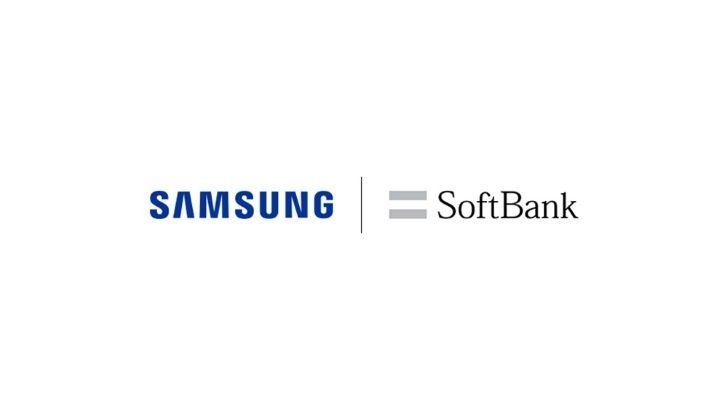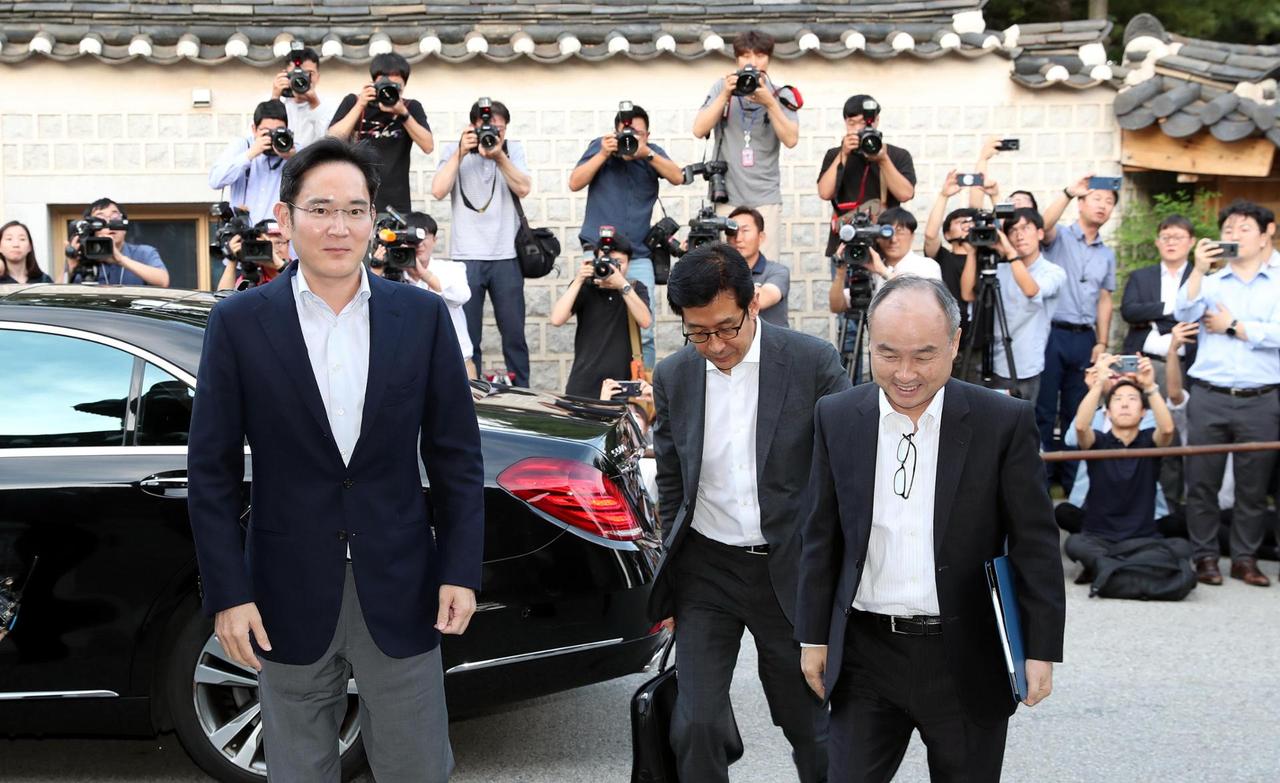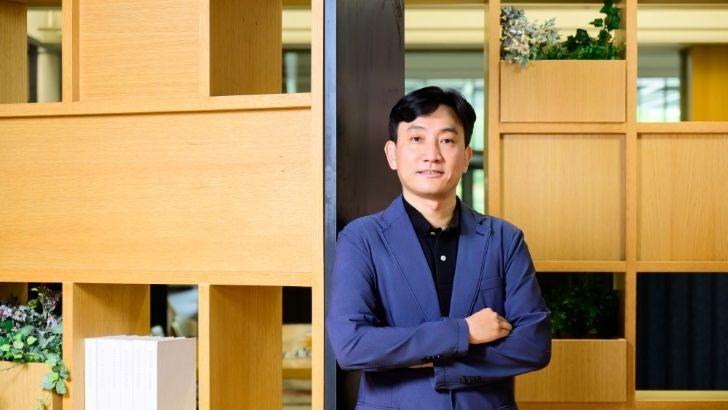Samsung and SoftBank Join Forces to Pioneer AI-Powered 6G Networks
4 Sources
4 Sources
[1]
[Next-Generation Communications Leadership Interview ④] Ushering in the 6G Era With AI Innovation and Global Partnerships
As the 6G era approaches, the telecommunications industry is evolving through the integration of diverse technologies. Networks are no longer simple connection infrastructure -- they're becoming AI-driven platforms powering the future of service innovation. In line with this transformation, Samsung Electronics is building a next-generation technology ecosystem through AI-native networks and strengthening global partnerships to prepare for the 6G era. In the final part of this interview series, Samsung Newsroom spoke with JinGuk Jeong, Executive Vice President and Head of Advanced Communications Research Center (ACRC) at Samsung Electronics, about the company's strategy to drive the convergence of telecommunications and AI for the 6G era through global partnerships. Ahead of the 6G era, the integration of AI and telecommunications is creating new value beyond performance gains. "The fusion of AI and telecommunications will deliver two core benefits -- innovation in user experience and greater network efficiency through automation," said Jeong. "To achieve this, Samsung is leading research on AI-native networks that embed AI across every layer of the telecommunications network." "AI native doesn't mean applying AI to specific equipment or functions -- it means embedding AI technologies throughout the entire process, from design to operation," he continued. "For example, in the physical layer (L1), AI reduces noise in radio signals, while in the data link layer (L2), it efficiently allocates network resources for each user." This approach enhances network performance while reducing power consumption, paving the way for a more sustainable telecommunications environment. Through its AI-native approach, Samsung is developing intelligent networks that learn and optimize themselves. "Close collaboration with global telecom operators is essential to realizing the user experience innovations and operational efficiencies enabled by AI," said Jeong. "Samsung is pursuing joint initiatives to bring these technologies to real-world network environments." "These efforts are driven by our open innovation strategy," he added. "By diversifying collaborations with partners -- from field trials with telecom operators to advanced research with academia and partnerships with global industry alliances -- Samsung is expanding the ecosystem and taking a leading role in standardization." Since 2024, Samsung has strengthened its global partnerships. The company has worked with NTT DOCOMO on user-specific network optimization technologies and with KT to improve coverage and data transmission speeds in potential 6G frequency bands. Samsung is also enhancing user experience through collaboration with KDDI Research on distributed multiple-input multiple-output (MIMO) technology. With Verizon, the company is expanding global discussions on next-generation telecommunications through the Verizon 6G Innovation Forum. In addition, Samsung has begun research with SoftBank on AI-based network performance enhancements. Moving forward, the company plans to continue strengthening its partnerships with telecom operators worldwide. Beyond these partnerships, Samsung is expanding the AI-driven telecommunications ecosystem through global collaborations. As part of the NextG Initiative Corporate Affiliates Program, the company is co-developing next-generation 6G technologies with Princeton University. Samsung is also broadening its collaboration with leading chip vendors, including Qualcomm, Intel, Arm and NVIDIA. "The expansion of our partnerships with major telecom operators shows our commitment to turning the technological direction outlined in our 6G white paper earlier this year into concrete research agreements," said Jeong. "In particular, AI-RAN has moved beyond general simulations and lab-based testing and can now be validated in real-world network environments -- allowing global telecom operators to directly experience its benefits. This will be a key driver in accelerating global standardization discussions." Samsung is also leading technical discussions within global industry alliances, shaping the transition to the 6G era. Since the founding of the AI-RAN Alliance in 2024, Samsung has served as vice chair of the board and chair of Working Group 3 (AI-on-RAN) -- spearheading efforts to explore new services through the convergence of AI and wireless technologies. As vice chair of the board for the Next G Alliance, the company also plays a key role in driving research, development and standardization for 6G across North America. "Leveraging our industry-leading expertise in semiconductors, hardware, and software, Samsung is helping lead technical discussions and decision-making within these global alliances," said Jeong. Building on its strengths, Samsung continues to demonstrate leadership on the global stage by showcasing proven technologies. At international exhibitions such as Mobile World Congress (MWC) 2025, the company drew significant attention with its latest AI-RAN innovations. Through its own Silicon Valley Future Wireless Summit, Samsung invites telecom operators, manufacturers, government agencies, and academic experts from around the world to share the latest research and achievements in AI-powered telecommunications. Under the theme "Future Wireless for the AI Era," last year's Silicon Valley Future Wireless Summit featured a live demonstration of AI-RAN technologies and explored AI integration, sustainability and user experience innovation. "This year's summit, scheduled for November, will take place under the theme 'Unlocking New Possibilities With AI-Centric Networks,'" said Jeong. "We plan to showcase AI-RAN technologies validated in real network environments, along with innovative real-world applications." Samsung's ongoing participation in global alliances and international forums is ultimately aimed at creating meaningful user experiences in everyday life. "In the 6G era, we'll go beyond improving network performance. Services such as AR and XR will become more widespread, and entirely new ones will emerge," said Jeong. "Events like the 6G Innovation Forum will also focus on these new services." Mobile communications technology has evolved in roughly 10-year cycles, with each generation delivering leaps in performance. The 6G era, however, will redefine network performance and serve as a catalyst for transformative services across industries and everyday life. With ultra-high speeds, ultra-low latency and massive connectivity, 6G is expected to deliver unprecedented communication quality and differentiated user experiences. Samsung is ushering in a new paradigm through the convergence of telecommunications and AI. By working closely with telecom operators, global industry alliances and academia, the company is leading next-generation communications innovation through ongoing technical collaboration and shared achievements. With this fourth and final installment, the Next-Generation Communications Leadership series has explored Samsung's 6G standardization vision, global leadership initiatives, AI-RAN research achievements and global partnership strategy. As Samsung prepares for the 6G era with its unrivaled leadership, the company is poised to bring meaningful change to everyday life.
[2]
Samsung Electronics and SoftBank Corp. To Collaborate on AI-RAN Technologies for Next-Generation Telecommunications
Samsung Electronics and SoftBank Corp. have signed a Memorandum of Understanding (MOU) for joint research into next-generation communications technologies, including 6G and AI-based radio access network (AI-RAN) innovations. The two companies will categorize next-generation communications technologies into four candidate areas -- 6G, AI for RAN, AI and RAN, and Large Telecom Model (LTM) -- and collaborate on select fields to drive future innovation. Leveraging their advanced technological expertise and network deployment capabilities, they plan to identify new use cases, jointly develop core technologies and demonstrate the technologies' effectiveness. This year marks a significant push toward 6G standardization, with discussions emerging on new frequency bands such as the 7GHz spectrum. Under the "AI for RAN" concept, AI-RAN technologies are expected to play a pivotal role in optimizing wireless networks. Moreover, AI-RAN orchestration technologies under the "AI and RAN" concept -- designed to seamlessly integrate AI workloads with base station workloads and operate them efficiently -- hold significant potential for network optimization and enhanced user experiences. The use of Generative AI within communications networks is being considered a viable area of research as well. "Through this collaboration with SoftBank, we aim to define meaningful use cases for both operators and end users, while securing key technologies for future commercialization," said JinGuk Jeong, Executive Vice President and Head of Advanced Communications Research Center (ACRC) at Samsung Research. "Building on our advanced expertise in AI-RAN and 6G, Samsung will continue to lead innovation in next-generation communications." "We are very pleased to collaborate with Samsung, a global leader in communications technologies. By combining our advanced expertise, we will accelerate the realization of next-generation networks that evolve to become more efficient and highly reliable through AI-RAN," said Hideyuki Tsukuda, Executive Vice President and CTO, SoftBank Corp. "SoftBank remains committed to taking on the challenge of building the next-generation social infrastructure essential for a future society where AI and humans coexist." Samsung Electronics continues to lead research in 6G and AI-powered communications technologies through its ACRC under Samsung Research. In November, the company plans to host the Silicon Valley Future Wireless Summit, an event aimed at fostering dialogue among industry leaders, academia and government organizations on AI-RAN research.
[3]
Samsung, SoftBank to Work on AI-Powered 6G Networks | AIM
Collaborating on AI-RAN, 6G, and generative AI to optimise networks and user experiences. Samsung Electronics and SoftBank have signed a Memorandum of Understanding (MoU) to jointly explore next-generation telecommunications technologies, including 6G and AI-based radio access networks (AI-RAN). The aim is to develop advanced communication solutions and wireless networks. Under the agreement, the two companies will focus on four key areas: 6G, AI for RAN, AI and RAN, and Large Telecom Models (LTM). The collaboration will involve identifying new use cases, co-developing core technologies, and demonstrating their effectiveness in real-world scenarios. AI-RAN technologies are expected to optimise network performance, while AI and RAN orchestration solutions will integrate AI workloads with base-station operations to improve efficiency. The use of generative AI within communications networks is also being explored as part of the initiative. "Through this collaboration with SoftBank, we aim to define meaningful use cases for both operators and end users while securing key technologies for future commercialisation," JinGuk Jeong, executive vice president and head of Advanced Communications Research Centre (ACRC) at Samsung Research, said in a statement. Hideyuki Tsukuda, executive vice president and CTO of SoftBank, added, "By combining our advanced expertise with Samsung, we will accelerate the realisation of next-generation networks that are more efficient and highly reliable. SoftBank remains committed to building the social infrastructure needed for a future where AI and humans coexist." The move comes amid growing global discussions on 6G standardisation, including the potential use of new frequency bands such as the 7GHz spectrum. Samsung Electronics, through its ACRC, continues to lead research in AI-powered communications and plans to host the Silicon Valley Future Wireless Summit in November.
[4]
Samsung Electronics, SoftBank to collaborate for next-gen network tech - The Korea Times
Samsung Electronics said Friday it has signed a memorandum of understanding (MOU) with SoftBank to jointly research and develop next-generation communications technologies, including 6G and artificial intelligence-based radio access network (AI-RAN) innovations. Under the agreement, the two companies will collaborate in selected areas to drive future innovation after categorizing next-generation technologies into four candidate fields: 6G, AI for RAN, AI and RAN, and large telecom model (LTM), Samsung Electronics said. They plan to identify new use cases, jointly develop core technologies and verify their effectiveness by leveraging their technological expertise and network deployment capabilities. Discussions on 6G standardization and new frequency bands, such as the 7-gigahertz (GHz) spectrum, have recently intensified, with AI-RAN technologies expected to play a key role in optimizing wireless networks, according to the company. Generative AI is also emerging as a promising area of research in the communications network industry. "Through this collaboration with SoftBank, we aim to define meaningful use cases for both operators and end users, while securing key technologies for future commercialization," said Jeong Jin-guk, executive vice president at Samsung Electronics. "Building on our advanced expertise in AI-RAN and 6G, Samsung will continue to lead innovation in next-generation communications," he added.
Share
Share
Copy Link
Samsung Electronics and SoftBank Corp. have signed an MOU to collaborate on next-generation communications technologies, focusing on 6G and AI-based radio access networks (AI-RAN). This partnership aims to drive innovation in network optimization and user experiences through AI integration.
Samsung and SoftBank Forge Partnership for Next-Generation Communications
Samsung Electronics and SoftBank Corp. have signed a Memorandum of Understanding (MOU) to collaborate on next-generation communications technologies, with a primary focus on 6G and AI-based radio access network (AI-RAN) innovations
1
2
. This strategic partnership aims to drive future innovation in the telecommunications industry by leveraging the expertise of both companies.
Source: Samsung
Four Key Areas of Collaboration
The collaboration will focus on four main areas of next-generation communications technologies
2
:- 6G
- AI for RAN
- AI and RAN
- Large Telecom Model (LTM)
By concentrating on these areas, the companies plan to identify new use cases, jointly develop core technologies, and demonstrate their effectiveness in real-world scenarios
2
3
.
Source: Korea Times
AI-Native Networks and Network Optimization
Samsung is leading research on AI-native networks, which involve embedding AI across every layer of the telecommunications network
1
. This approach aims to deliver two core benefits: innovation in user experience and greater network efficiency through automation.JinGuk Jeong, Executive Vice President and Head of Advanced Communications Research Center (ACRC) at Samsung Electronics, explained, "AI native doesn't mean applying AI to specific equipment or functions -- it means embedding AI technologies throughout the entire process, from design to operation"
1
.
Source: Samsung
Global Partnerships and Ecosystem Expansion
Samsung is actively pursuing global partnerships to bring these technologies to real-world network environments. The company has collaborated with various telecom operators, including NTT DOCOMO, KT, KDDI Research, and Verizon, to work on user-specific network optimization technologies and improve coverage and data transmission speeds in potential 6G frequency bands
1
.Additionally, Samsung is expanding its collaboration with leading chip vendors such as Qualcomm, Intel, Arm, and NVIDIA to broaden the AI-driven telecommunications ecosystem
1
.Related Stories
Standardization and Industry Leadership
As discussions on 6G standardization intensify, including the potential use of new frequency bands like the 7GHz spectrum, Samsung is playing a crucial role in shaping the transition to the 6G era
1
4
. The company serves as vice chair of the board for the Next G Alliance and is actively involved in the AI-RAN Alliance, driving research, development, and standardization efforts for 6G across North America1
.Future Implications and Challenges
The collaboration between Samsung and SoftBank represents a significant step towards realizing next-generation networks that are more efficient and highly reliable through AI integration
2
. As the telecommunications industry evolves, networks are becoming AI-driven platforms powering the future of service innovation1
.Hideyuki Tsukuda, Executive Vice President and CTO of SoftBank Corp., emphasized the importance of this collaboration, stating, "SoftBank remains committed to taking on the challenge of building the next-generation social infrastructure essential for a future society where AI and humans coexist"
2
.As the industry moves forward, the integration of AI and telecommunications is expected to create new value beyond performance gains, potentially revolutionizing user experiences and network operations in the upcoming 6G era
1
3
.References
Summarized by
Navi
Related Stories
Keysight, Samsung, and NVIDIA Collaborate to Advance AI-Optimized RAN Technology for 5G and Beyond
05 Mar 2025•Technology

NVIDIA Unveils New Tools for AI-Native 6G Wireless Networks
19 Mar 2025•Technology

Nvidia Invests $1 Billion in Nokia to Accelerate AI-Powered 6G Networks
29 Oct 2025•Business and Economy

Recent Highlights
1
Pentagon threatens to cut Anthropic's $200M contract over AI safety restrictions in military ops
Policy and Regulation

2
ByteDance's Seedance 2.0 AI video generator triggers copyright infringement battle with Hollywood
Policy and Regulation

3
OpenAI closes in on $100 billion funding round with $850 billion valuation as spending plans shift
Business and Economy





